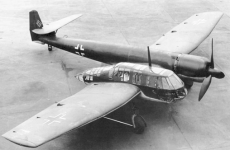Bene Tleilax
Well-known member
If his family stayed in New York, possibly as part of a President Wallace TL...He was born in Tel Aviv, so I think not possible.
If his family stayed in New York, possibly as part of a President Wallace TL...He was born in Tel Aviv, so I think not possible.
They really missed a trick not printing out 1,935 of those bills.It was a limited-edition commemorative banknote, issued only for a short period in 1935 to in honour of the silver jubilee of King George V, Canada’s reigning monarch at the time. The note features a portrait of the King alongside his wife, Queen Mary.
There are approximately 1,840 of these bills.
President Benjamin Netanyahu delivers the State of the Union, with Speaker John Boehner and Vice President Orrin Hatch in the background. This could technically happen, Netanyahu was born in America.
If his family stayed in New York, possibly as part of a President Wallace TL...
His fathers last name was Mileikowsky before moving to Israel.They would have changed their surname to Norton, and his brother would have been killed during a successful Operation Eagle Claw
Sticking on the money theme, a fiver from New York in 1771.
View attachment 74297
I do like it being rendered in abbreviated Latin as 'Nov. Eborac.' in the seal.
That was quite common on American money at the time, both loyalist and rebel."'Ti's Death to counterfeit" tickled me.


I thought this was AI-generated for a moment.
See, this one is an interesting one because ITA wasn't meant to be a spelling reform wholesale but a pedagogical tool- it just wasn't/isn't very good for that, as the ability to spell things in ITA doesn't really translate to being able to spell them in standard English.
There's a fair few from 1950s America which just got brushed over, but make some things written at the time look well weird now - 'thru' for 'through' is a fairly well known one, but also 'prex' for 'president' springs to mind.I think scenarios like EdT's Syndicalist Britain could have a solid chance of developing weird English language reforms, and OTL's America got close a few times.
Just watched Technology Connections' new video on old relay-based pinball machines (which is itself a source of fascinating ideas about alternate technological pathways). However, I mainly mention it because of one side point - the pinball machine he was showing, from the late 1970s, had a built-in difficulty setting (which only the proprietor could set, as it was on the inside). But rather than EASY, MEDIUM or HARD as one might expect from modern video games etc - to the point that we might wonder what other possibility is there - the choices were LIBERAL, MEDIUM (or MODERATE? not sure) and CONSERVATIVE. There's an interesting what-if - if that had stuck around for game difficulties, it might mean people don't associate those words purely with partisan politics and not think about what their inherent meaning is.
For context, this is the County Sessions House on William Brown Street, Liverpool, and the above photo is from a film shoot in the 1990s
For context, this is the County Sessions House on William Brown Street, Liverpool, and the above photo is from a film shoot in the 1990s
(I walked past it every day on my way to work for six years, so this particular bout of chronausea hits quite close to home!)
I don’t know, but I don’t think so; according to the source I saw, the film in question was never releasedWas the film shoot Fatherland?
